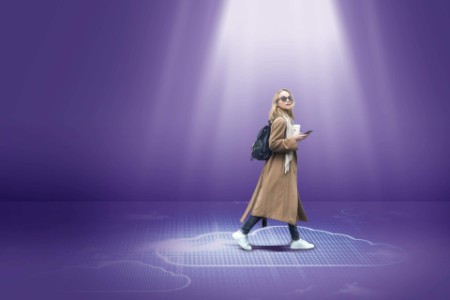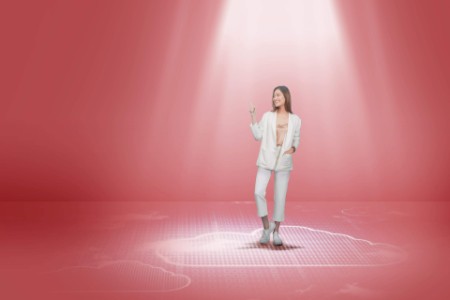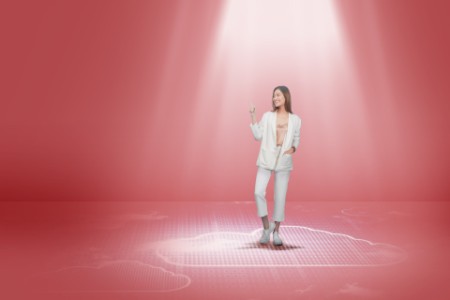
Chapter
Intellectual property
Copyright infringement of computer games
Factual state
Riot Games is a well-known video game developer. It created, among other things, the game League of Legends, which is the most popular e-sports game in the world. The company's success has sparked the creation of many copycats trying to profit from the popularity of Riot Games.
Against this background, a dispute arose between Riot Games and Chinese game developer NetEase, which released the mobile game Hyper Front in 2022. It resembles in many ways the computer game Valorant, developed by Riot Games.
Players could get familiar with Valorant in April 2020. The game is currently only available on computers, but a mobile version has been announced in 2021.
Riot Games lawsuit
Riot Games has deemed that the similarities of the Hyper Front game to Valorant cause infringement of Riot Games' copyrights. As a result, the developer decided to sue NetEase in several countries. Among the claims raised in the lawsuit were:
- similarities in gameplay - 5v5 teams, focus on the abilities of individual characters, walking pace, short time to kill the enemy, game modes;
- graphic design style similarities - character type and color scheme, weapon designs and colors, interface, maps;
- Hyper Front's release coincided with Riot Games' announcement of the development of the mobile version of Valorant;
- NetEase began work on its game shortly after Riot Games released Valorant.
Link to source: Riot Games vs. NetEase
Riot Games has decided to file a lawsuit in the UK, Germany, Brazil and Singapore. We have not yet learned the court decision in any of these countries. We can wonder what the court's decision might be if such a situation happened in Poland.
The state of computer games in Polish copyright law
Computer games are a unique form of work. The legislator has not chosen to regulate their legal situation separately, which causes many problems in determining the protection to which they are entitled under the Law of February 4, 1994 on Copyright and Related Rights.
Although some elements indicate that they can be considered a specific form of computer program, one can also find arguments for applying the provisions on the protection of audiovisual works to their protection. Currently, this is an unresolved issue in Polish jurisprudence.
The dominant voice in the doctrine is the recognition of computer games as a mixed work and the respective application of provisions on audiovisual works and computer programs to their specific elements.
The Riot Games case in the perspective of the Polish legal order
The circumstances are complicated. We can assume that similarities in gameplay would not be protected under Polish copyright law, since ideas and rules of operation are excluded from copyright protection.
It is likely, however, that the court could grant the applications regarding the similarity of character models or maps, as such elements can be considered works if they meet the requirements of the Copyright Act.

Chapter
IT
European Union regulates artificial intelligence
On 6 December 2022, the Council adopted another common position on the Artificial Intelligence Act - the planned regulation on artificial intelligence systems.
General objectives
The upcoming regulation primarily aims to ensure that artificial intelligence systems marketed and used in the EU are safe and comply with European law, as well as with EU values. In addition, the regulation is expected to facilitate investment and innovation in the field of artificial intelligence. The planned regulation is also intended to facilitate the development of a single market for legitimate, safe and reliable artificial intelligence applications, while preventing market fragmentation.
Specific objectives
- Harmonize member states' regulations on the introduction, commissioning and use of artificial intelligence systems in the EU;
- Introduce prohibitions on practices inconsistent with EU values on artificial intelligence;
- Regulate the specific requirements for high-risk artificial intelligence systems and the obligations of entities that operate such systems;
- Harmonize European and Member State regulations on transparency for certain artificial intelligence systems;
- Introduce legal provisions for after-market monitoring of artificial intelligence systems.
We present selected provisions from the current version of the draft Artificial Intelligence Regulation.

Chapter
Cybersecurity
New challenges in IT compliance - an overview of NIS 2 obligations
Introduction
On 27 December 2022, Directive (EU) 2022/2555 of the European Parliament and of the Council of 14 December 2022 on measures for a high common level of cybersecurity across the Union, amending Regulation (EU) No 910/2014 and Directive (EU) 2018/1972, and repealing Directive (EU) 2016/1148 (hereinafter: NIS 2 Directive) was published in the Official Journal of the European Union.
The NIS 2 Directive will require implementation into national law. Implementation into the national orders of the EU Member States should be carried out by 17 October 2024. In Poland, the implementation of NIS 2 may take place through the amendment of the Act of 5 July 2018 on the National Cybersecurity System or through the enactment of a new law or laws implementing NIS 2.
The directive will have a significant impact on the essential and important entities defined in NIS 2.
The NIS 2 Directive will replace the current Directive (EU) 2016/1148 of the European Parliament and of the Council of 6 July 2016 concerning measures for a high common level of security of network and information systems across the Union (hereinafter: NIS Directive).

Chapter
Data protection
On 13 December 2022, the European Commission has published a draft decision to recognize an adequate level of protection for personal data in the US
The General Data Protection Regulation 2016/679 of 27 April 2016. (hereinafter: GDPR) contains significant restrictions on the transfer of personal data to a third country or international organization. The Regulation contains a closed catalogue of conditions which, if met, allow the transfer of personal data to a specific country without risking breach of the personal data protection under the GDPR.

Chapter
E-commerce
Consumer protection - what is changing from 1 January 2023?
Legal basis for change
- DIRECTIVE (EU) 2019/2161 OF THE EUROPEAN PARLIAMENT AND OF THE COUNCIL of 27 November 2019 amending Council Directive 93/13/EEC and Directives 98/6/EC, 2005/29/EC and 2011/83/EU of the European Parliament and of the Council as regards the better enforcement and modernization of Union consumer protection rules (so-called Omnibus Directive).
- DIRECTIVE (EU) 2019/770 OF THE EUROPEAN PARLIAMENT AND OF THE COUNCIL of 20 May 2019 on certain aspects concerning contracts for the supply of digital content and digital services (so-called Digital Directive)
- DIRECTIVE (EU) 2019/771 OF THE EUROPEAN PARLIAMENT AND OF THE COUNCIL of 20 May 2019 on certain aspects concerning contracts for the sale of goods, amending Regulation (EU) 2017/2394 and Directive 2009/22/EC, and repealing Directive 1999/44/EC (so-called Goods Directive)
Contact us!
Summary
Here is the next study prepared as part of the Make IT clear program.
Every month we will show you the trends that entrepreneurs should follow and the solutions that should be implemented in order to be up to date with the law of technology, intellectual property and data protection. We will also indicate the risks and challenges associated with your business.
Do not hesitate to contact us!
Contact us
Interested in the changes we have made here,
contact us to find out more.


